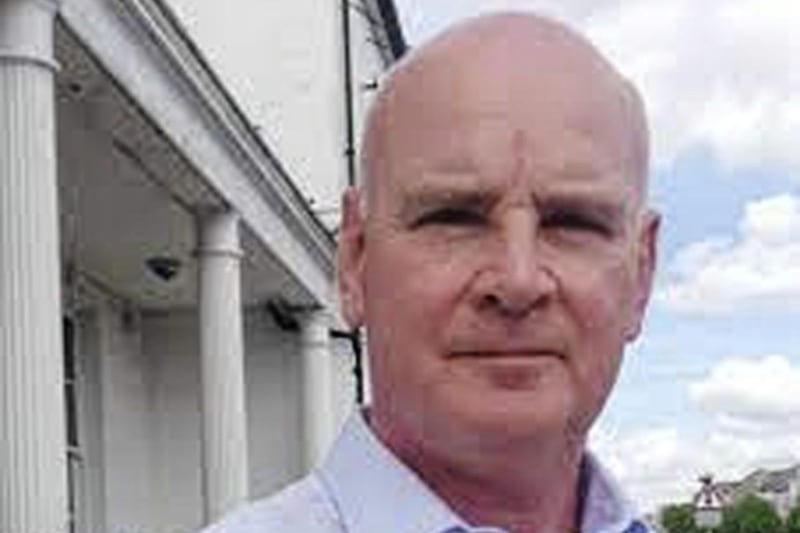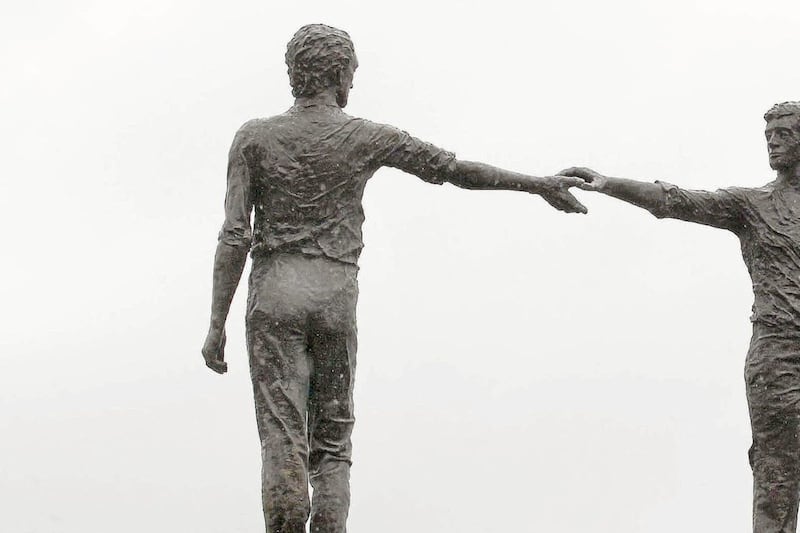THE novelist Edward G. Bulwer Lytton once said: "A reform is a correction of abuses; a revolution is a transfer of power."
The continuing instability at Stormont, the extremely long hospital waiting lists and despair at the state of our local infrastructure should challenge us to decide who is best placed to deliver our public services.
Like a performance in a Greek tragedy, we have witnessed Stormont’s collapse, threats to bring down the structures, and constant stalemates. The protagonists include the NI Protocol, an Irish Language Act and the RHI scandal, all in a backdrop which sometimes doesn’t seem out of place in one of Aristotle’s dramas.
Whether we support a united Ireland, cherish the Union, or prefer neither matters little when families are suffering, and heartache is felt in every community.
We all need solutions that deliver both efficient and effective services and improve political stability here in Northern Ireland. It is true that the political difficulties at Stormont have made taking the hard decisions on public services more problematic, but maybe our councils could do more to help.
Since the 11 super councils were created in 2015, they have successfully undertaken the responsibilities for planning, some economic development functions and running of off-street car parks.
And despite the occasional negative headline, elected councillors generally come together and agree on the every-day issues that impact our local communities.
At Armagh City, Banbridge and Craigavon Borough Council, the more contentious debates tend to be to national issues, whilst most of the local decisions are agreed by the councillors.
Therefore, should more powers be transferred to our 11 councils? And you may ask, why on earth should we swop one group of elected politicians for another?
Firstly, making elected councillors responsible for potholes and local roads would improve accountability and drive efficiencies. It may also address some of the systemic problems in the planning system, as many of these delays can be related to the operations and priorities of the different departments and statutory bodies.
Devolving more powers, like full regenerations powers, public libraries, local roads and some public transport responsibilities might boost our hard-pressed town centres. After all, since the pandemic many of us are working, shopping and socialising differently.
So, what happens elsewhere?
In Scotland, local authorities have more wide-ranging powers including the responsibility for local roads, libraries, social care and health in addition to parks and leisure, bins, cemeteries and planning.
Therefore, maybe our local councils could assist in the provision of social care or related services. This could alleviate some of the pressure on the Department of Health and free it up to concentrate on its core functions of delivering quality health care and reducing the waiting lists.
In general, there are social and economic reasons for devolving more powers to local authorities. In European countries, like Switzerland, it can be argued that the key to their success is localism, devolved decision-making and direct democracy.
Their devolution process is described as ‘subsidiarity’; and defined as everything that can be done at the lower or local political level should not be done at the higher level.
But would Stormont want to give away some of its powers? It would be like asking ‘The Beatles’ to give up the rights to their prized back catalogue for the first time!
Stormont has already recognised the regional imbalance across Northern Ireland, and this can be seen in the City and Regional Deals that are being processed to try and reverse the lack of investment in the areas outside of Belfast.
If there was change, it would certainly need to be a gradual process. Stormont would probably need to retain responsibilities for the health service, justice and policing, education and trunk roads, and the role of oversight and law-making.
Finally, local community groups and charities already undertake valuable services through their own fundraising activities and with the aid of financial assistance grants from local authorities.
Coming out of the pandemic, the transfer of more powers from Stormont to councils could also strengthen these groups and empower our local communities and businesses.
Would a dose of radical reform also restore some political stability?
:: Councillor Brian Pope is Alliance Party group leader on Armagh City, Banbridge and Craigavon Borough Council






